The press conference launched the Global Alliance’s declaration opposing REDD (posted below inEnglish, Spanish and Portuguese).
REDD-Monitor looks forward to discussion about the declaration, particularly from REDD proponents who didn’t fill in a job application form that includes the words “rape and pillaging of Mother Earth”, “crimes against humanity”, “genocide” and “a thinly-veiled, wicked, colonialist planet grab”.
NO REDD+! in RIO+20 – A Declaration to Decolonize the Earth and the SkyGlobal Alliance of Indigenous Peoples and Local Communities on Climate Change against REDD+
After more than 500 years of resistance, we, Indigenous Peoples, local communities, peasant farmers, fisherfolk and civil society are not fooled by the so-called Green Economy and REDD+ because we know colonialism when we see it. Regardless of its cynical disguises and shameful lies, colonialism always results in the rape and pillaging of Mother Earth, and the slavery, death, destruction and genocide of her peoples.[1] Rio+20’s Green Economy and REDD+ constitute a thinly-veiled, wicked, colonialist planet grab[2] that we oppose, denounce and resist. Rio+20 is not an Earth Summit, it is the WTO of Life.
Just as historically the Doctrine of Discovery was used to justify the first wave of colonialism by alleging that Indigenous Peoples did not have souls, and that our territories were “terra nullius,” land of nobody,[3] now the Green Economy and REDD+ are inventing similarly dishonest premises to justify this new wave of colonialization[4] and privatization of nature. Indigenous Peoples and peasants are being killed, forcibly relocated, criminalized, and blamed for climate change.[5] Our land is being labeled “unused,”[6] “degraded”[7] or in need of “conservation”[8] and “reforestation,”[9] to justify massive land grabs[10] for REDD+, carbon offset projects and biopiracy.[11]
But what exactly is the Green Economy and REDD+? The Green Economy is nothing more than capitalism of nature;[12] a perverse attempt by corporations,[13] extractive industries[14] and governments to cash in on Creation by privatizing, commodifying, and selling off the Sacred and all forms of life and the sky, including the air we breathe, the water we drink and all the genes, plants, traditional seeds, trees, animals, fish, biological and cultural diversity, ecosystems and traditional knowledge that make life on Earth possible and enjoyable.[15]
The Green Economy is the umbrella for all kinds of ways to sell nature including REDD+,[16] the Clean Development Mechanism,[17] carbon trading,[18] PES (Payment for Environmental Services),[19] the financialization of nature,[20] the International Regime on Access to Genetic Resources,[21] patents on life,[22] TEEB (The Economics of Ecosystems and Biodiversity),[23] natural capital,[24] green bonds,[25] species banking[26] and state and business “partnerships” with indigenous peoples. Under the Green Economy, even the rain, the beauty of a waterfall or a honey bee’s pollen will be reduced to a barcode price tag[27] and sold to the highest bidder. At the same time, the Green Economy promotes and greenwashes environmentally and socially devastating extractive industries like logging,[28] mining[29] and oil drilling[30] as “sustainable development.” Nothing could be further from the truth.
REDD+, like carbon trading and the Clean Development Mechanism, is a false solution to climate change promoted by the United Nations, the World Bank and climate criminals such as Shell[31] and Rio Tinto[32], which allows polluters to continue to burn fossil fuels and not reduce their emissions at source.[33] Officially, REDD+ stands for Reducing Emissions from Deforestation and forest Degradation. But, REDD+ really means Reaping profits from Evictions, land grabs, Deforestation and Destruction of biodiversity.[34] REDD+ constitutes a worldwide land grab and gigantesque carbon offset scam.[35]
Originally, REDD just included forests and plantations, but its scope has been expanded to include GMO trees, soils and agriculture.[36] Ultimately, REDD+ may try to include and expropriate the entire surface of the Earth including most of the forests, soils, fields, grasslands, deserts, wetlands, mangroves, marine algae and oceans to use them as sponges for industrialized countries’ pollution. REDD+ is also the pillar of the Green Economy and has been blasphemously heralded as “the spiritual core” of the “business plan” that the governments of the world are writing for the planet.[37] REDD+ turns the sources of life on Earth into carbon garbage dumps;[38] it turns the planet’s wombs into tombs. But we are not going to let this happen!
Maybe the Green Economy is called green because that is the color of the dollar and maybe REDD+ was so dubbed in anticipation of its bloody consequences. Ask Olivia Mukamperezida, mother of Friday, an eight-year-old boy from Uganda who, according to The New York Times, was killed when his home was burned to the ground as over 22,000 small farmers with land deeds were violently evicted for a carbon offset plantation.[39] Ask farmer Antonio Alves who was persecuted, arrested at gun point and thrown in jail for 11 days by Força Verde, the armed guards of Chevron’s REDD+ project in Brazil, for cutting down a tree to repair his mother’s leaky roof.[40] Ask Chief Daniel Jiménez of the Matsés People of the Peruvian Amazon who had criminal charges brought against him for defending his people against an exploitive REDD+ contract in a foreign language that gave the carbon trader total control over the Matsés’ rainforest and way of life, forever.[41] Ask the Batwa Pygmy People who have suffered servitude on the World Bank’s Ibi-Batéké Forest Carbon Plantation in the Democratic Republic of Congo.[42] Ask the Ngaju Dayak People of Indonesia who have denounced the Kalimantan REDD+ project because it generates conflict and violates their right to free, prior, informed consent[43] enshrined in the UN Declaration on the Rights of Indigenous Peoples.[44]
These examples help us all see through the shameful lies and crass propaganda that try to hide the truth about REDD+. We know that REDD+ is not about saving the climate or protecting forests or eradicating poverty or distributing “benefits” or empowering women. Even the United Nations itself admits that REDD+ could result in the “lock-up of forests,” “loss of land,” “conflict over resources,” “new risks for the poor” and “marginalize the landless.”[45]
In fact, all the negative impacts of REDD+ that the UN foresaw are already happening. For example, in Africa, REDD+, carbon credits, agrofuels and export crops, are driving huge land grabs.[46] Furthermore, since REDD+ now includes plantations and agriculture, already existing plantations, agrofuels and export crops could soon become carbon offset projects as well.[47] Experts are warning that three-quarters of Africa’s population and two-thirds of its land are at risk[48] and that REDD+ may create “generations of landless people.”[49] In Africa, REDD+ is emerging as a new form of colonialism,[50] economic subjugation and a driver of land grabs[51] so massive that they may constitute a continent grab.
Meanwhile, inaction on climate change, masked by false solutions like REDD, is allowing the Earth’s temperature to rise 2 degrees or more, which effectively melts the Artic, incinerates Africa and drowns the Pacific.[52] Nine countries are disappearing under the waves as the sea level rises in the Pacific where 90% of the population is indigenous.[53] This constitutes climate racism and cultural genocide[54] on an unprecedented scale.
Unfortunately, REDD+ affects all regions of the world and all social sectors. For peasant farmers, REDD+ constitutes a worldwide counter-agrarian reform and perverts the task of growing food into “farming carbon.”[55] “Climate Smart Agriculture” is not smart, it is dumb.[56] Moreover, “climate-ready” seeds and other supposed GMO climate fixes are just more attempts of Monsanto, the biotech industry and agribusiness to deform, patent and control our seeds, grab our fields and turn us into landless, indentured peons.[57]
Applying a gender analysis to REDD+, it is clear that REDD+ also constitutes a new form of violence against women because it limits or prohibits women’s access to the land where we farm, gather food and draw water to feed and quench our families.[58] Similarly, for Indigenous Peoples, REDD+ threatens our cultural survival and is potentially genocidal since REDD+ proponents want to expropriate and control the majority of the forests and 80% of the world’s biodiversity, which is found in our lands and territories.[59] For fisherfolk and coastal communities, Blue REDD, that is doing REDD+ in the oceans and the waterways, could profoundly limit our fishing, thus undermining our sustenance and way of life.[60] As for workers, we know that the jobs created by REDD+-type plantation projects tend to be fewer than promised, the wages and labor conditions poor, the right to unionize often violated and the exposure to carcinogenic pesticides high.[61]
But REDD+ is not just destructive for adults. For children, youth and future generations, REDD+ and other false solutions to climate change, like large hydroelectric dams such as Belo Monte,[62] agrofuels, “clean” coal, nuclear power, natural gas, hydraulic fracturing, nanotechnology, synthetic biology,[63] bioenergy, biomass, biochar[64] and geo-engineering, endanger the future and life as we know it.[65] Instead of helping to reduce global warming, they poison and destroy the environment and let the climate crisis spiral exponentially, which may render the planet almost uninhabitable.
We cannot allow false solutions to climate change like REDD+ and the Green Economy to destroy the Earth’s balance, assassinate the seasons, unleash severe weather havoc, privatize life and threaten the very survival of humanity. REDD+ and the Green Economy are crimes against humanity and the Earth. However, we refuse to be the damned of the Earth and let the Earth be damned.
Heeding the wisdom of our elders and the prophecies of our ancestors, we launch this call for No REDD+! in Rio+20 and invite you to join us in planting this seed in the consciousness of the peoples of the world. Mother Earth, wounded and racked by pollution-induced fevers, is imploring us to change paradigms. Only a path which:
- Rejects REDD+ and the Green Economy as Privatization of Nature;
- Decolonizes life, land and the sky;
- Defends life and liberty;
- Respects human rights;
- Guarantees Indigenous Peoples’ rights;
- Honors Mother Earth and
- Protects the Sacred,
will save the world and allow us to live well and create the “future that we want.”
[1] ^^ Rodney, Walter, How Europe Underdeveloped Africa.[2] ^^ McAfee, Kathleen The Contradictory Logic of Global Ecosystem Services Markets. “Commodification and transnational trading of ecosystem services is the most ambitious iteration yet of the strategy of ‘selling nature to save it’. The World Bank and UN agencies contend that global carbon markets can slow climate change while generating resources for development. Consonant with ‘inclusionary’ versions of neoliberal development policy, advocates assert that international payment for ecosystem services (PES) projects, financed by carbon-offset sales and biodiversity banking, can benefit the poor. However, the World Bank also warns that a focus on poverty reduction can undermine efficiency in conservation spending. The experience of ten years of PES illustrates how, in practice, market-efficiency criteria clash directly with poverty-reduction priorities. Nevertheless, the premises of market-based PES are being extrapolated as a model for global REDD programmes financed by carbon-offset trading. This article argues that the contradiction between development and conservation observed in PES is inevitable in projects framed by the asocial logic of neoclassical economics. Application in international conservation policy of the market model, in which profit incentives depend upon differential opportunity costs, will entail a net upward redistribution of wealth from poorer to wealthier classes and from rural regions to distant centres of capital accumulation, mainly in the global North.”
[3] ^^ Newcomb, Steve. Five Hundred Years of Injustice. “In 1452, Pope Nicholas V issued to King Alfonso V of Portugal the bull Romanus Pontifex, declaring war against all non-Christians throughout the world, and specifically sanctioning and promoting the conquest, colonization, and exploitation of non-Christian nations and their territories…Under various theological and legal doctrines formulated during and after the Crusades, non-Christians were considered enemies of the Catholic faith and, as such, less than human. Accordingly, in the bull of 1452, Pope Nicholas directed King Alfonso to ‘capture, vanquish, and subdue the saracens, pagans, and other enemies of Christ,’ to ‘put them into perpetual slavery,’ and ‘to take all their possessions and property.’” Also see Davenport, Frances Gardiner, 19l7, European Treaties bearing on the History of the United States and its Dependencies to 1648, Vol. 1, Washington, D.C.: Carnegie Institution of Washington.
[4] ^^ Global Justice Ecology Project, Timberwatch et al, No REDD papers, volume 1, The REDD+ Trojan Horse. “If REDD-style schemes are allowed to be imposed on African forestland, fields and grasslands, it could mean the economic subjugation of the entire continent…REDD and CDM schemes will probably be no more than a form of re-colonisation, and the final drive to commodify the remaining spaces of Africa left in indigenous hands after the first round of formal colonialism.”
[5] ^^ REDD Monitor, Ten of the worst REDD-type projects affecting Indigenous Peoples & Local Communities.
[6] ^^ REDD for Communities and Forests et al, A one-step guide to making the national REDD strategy more pro-poor. “The draft National REDD strategy justifies the classification of 49 % of forests as being on general land by stating that, ‘General Land as used here means all public land which is not reserved or village land including unoccupied or unused village land.’ On the same page, the strategy also states, ‘Forests in General Land are ‘open access’, characterized by unsecured land tenure, shifting cultivation, annual wild fires, harvesting of wood fuel, poles and timber, and heavy pressure for conversion to other competing land uses, such as agriculture, livestock grazing, settlements and industrial development. ’Confusingly, in these two definitions, land that communities use for agriculture, harvesting of wood products, grazing and even settlement is defined as ‘unused’.”
[7] ^^ The Ecologist, Lack of forest definition ‘major obstacle’ in fight to protect rainforests. “In the second in our series examining REDD we report how ambiguous forest definitions are putting the future success of forest protection schemes in doubt and allowing logging companies to destroy biodiverse habitats – The current lack of a working definition of what degraded forest or land is ‘plays into the hands’ of logging companies, say forest campaigners. The companies claim to responsibly develop ‘only on degraded land’, but in reality this can actually mean they are clearing forests and peatlands.”
“Over 80% of the world’s remaining biodiversity is found within Indigenous peoples’ lands and territories Indigenous peoples represent approximately 350 million individuals in the world and make up approximately 90% of the world’s cultural diversity. We use our highly specialized, traditional knowledge to care for and conserve the interconnected web or “Circle of Life” known as “biodiversity.” Indigenous Peoples Council on Biocolonialism.
Conversation International, REDD+. “Two immediate ways to reduce greenhouse gas emissions are to halt the destruction of remaining tropical forests and to plant trees in degraded areas.”
Redd Forests Pty ltd is a “profit for purpose” business designed to apply commercially viable methodologies to replace activities which degrade or destroy the world’s forests.
[8] ^^ � Dowie, Mark, Conservation Refugees -When protecting nature means kicking people out.
[9] ^^ Friends of the Earth International, REDD Myths.
[10] ^^ �“The mere prospect of deforestation credits being recognized in a new US climate bill has been enough to spark a REDD land grab in Central Africa.” Point Carbon, Firms Targets US Buyers with African REDD credits, 20 July 2009.
Rights and Resources International, African land grabs hinder sustainable development. “Of the 203 million hectares of land deals reported worldwide between 2000 and 2010, two-thirds were in Africa. The acquisitions are dispossessing millions of Africans of their land, to make way for expansive forestry and mineral projects and plantations…”“The global report shows the scale of the issue as never before: three-quarters of Africa’s population and two-thirds of the landscape are at risk,” says Andy White, who coordinates the RRI.” “[I]nternational efforts at sustainable development are also threatening these areas.”
[11] ^^ Indigenous Peoples Council on Biocolonialism www.ipcb.org. Biopiracywww.etcgroup.org.
[12] ^^ � Climate and Capitalism, Behind the ‘Green Economy’ – A new drive to commodify nature. “The ideological force behind the zero draft is the 2011 UNEP report Towards a Green Economy: Pathways to Sustainable Development and Poverty Eradication that shows clearly the ultimate goal of achieving ‘green capitalism’.”
Towards a Green Economy: Pathways to Sustainable Development and Poverty Eradication.
[13] ^^ ETC Group, Who will control the Green Economy?
[14] ^^ Carbon Trade Watch, Map of Corporations and Extractive Industries promoting REDD, page 16 and 17.
[15] ^^ No REDD Reader, Cashing in on Creation: Gourmet REDD privatizes, packages, patents, sells and corrupts all that is Sacred.
[16] ^^ Lohmann, Larry Chronicle of a Disaster Foretold REDD-with-Carbon-Trading.
[17] ^^ CDM Watch, UN Under Pressure to Halt Gaming and Abuse of CDM.
[18] ^^ Carbon Trade Watch Carbon Trading in Africa: A Critical Review.
[19] ^^ Ribeiro, Silvia, REDD in the Lacandon Forest.
[20] ^^ Maryknoll Office for Global Concerns, The Financialization of Nature.
[21] ^^ Harry, Debra and Kanehe, Le`a Mali, The BS in Access and Benefit Sharing (ABS): Critical Questions for Indigenous Peoples.
[22] ^^ Greenpeace, Patents on Life, “A dangerous wave of privatization of all biological diversity is presently taking place under the label of ‘intellectual property rights’, i.e. patenting of plants, animals and individual parts of DNA”.
[23] ^^ Acción Ecologica et al, Finance for biodiversity is a “new face for capitalism”.
The Economics of Ecosystems and Biodiversity www.teebweb.org.
[24] ^^ The Natural Capital Declaration. “The Natural Capital Declaration is a statement by the financial sector demonstrating our commitment at the Rio+20 Earth Summit to work towards integrating Natural Capital criteria into our financial products and services for the 21st century.”
[25] ^^ Green Bonds: Fixed Returns to Fix the Planet.
World Bank Green Bonds. “World Bank Green Bonds are an opportunity to invest in climate solutions through a high quality credit fixed income product.”
[26] ^^ Species Banking
[27] ^^ �Consortium for the Barcode of Life.
[28] ^^ �ITTO and Indonesian Government Launch REDD Partnership.
[29] ^^ Mining Industry and IUCN The World Conservation Union Announce Partnership on Mining and Biodiversity.
International Indian Treaty Council Open Letter.
[30] ^^ �IUCN-Shell collaborative partnership agreement: Overview.
[31] ^^ �Shell bankrolls REDD Indigenous Peoples and environmentalists denounce.
[32] ^^ �Rio Tinto, an international mining company infamous for violating human rights and causing environmental destruction, promotes REDD. Accordingly, “REDD is used as an economic tool to offset the carbon footprint of Rio Tinto.” Extractive Industries and REDD – Sinning then praying evens the score or How to legitimize pillaging and destruction.
IUCN – Rio Tinto Facilitated Workshop Summary
“Carbon Conservation signed a REDD-deal with Rio Tinto in 2007”.
The Financial Costs of REDD.
Rio Tinto: Global Compact Violador.
Rio Tinto: A Shameful history of Human and Labour Rights Abuses.
[33] ^^ �No REDD Reader.
[34] ^^ Indigenous Environmental Network, REDD= Reaping profits from Evictions, land grabs, Deforestation and Destruction of Biodiversity Plus Plantations and GMO Trees.
[35] ^^ � Abya Yala Nexus, Carbon Trading Violates Indigenous Peoples Rights.
“This could result in the biggest land grab of all time. It will inevitably promote privatization of forests and soils through carbon markets. This could commodify almost the entire surface of the Earth,” said Hortencia Hidalgo of the Global Alliance of Indigenous Peoples.
[36] ^^ � Econexus, Agriculture and Soils in Carbon Trading.
[37] ^^ �REDD Monitor, News from the Conference of Polluters (Durban, COP 17). Executive Secretary to the UNFCCC, Christiana Figueres, told delegates gathered at Forest Day on 4 December, that “The governments of the world are writing a global business plan for the planet, […] and REDD is its spiritual core.”
[38] ^^ � World Rainforest Movement, Basureros de Carbono Japoneses en Australia.
Lohmann, Larry, Marketing and Making Carbon Dumps: Commodification, Calculation and Counterfactuals in Climate Change Mitigation.
[39] ^^ � The Guardian (2011), “Ugandan farmer: ‘My land gave me everything. Now I’m one of the poorest’”.
Wall Street Journal (2011), “African Land Acquisitions Comes Under Scrutiny”.
New York Times (2011), “In Uganda, Losing Land to Planted Trees—Slide Show”.
New York Times, “In Scramble for Land, Group Says, Company Pushed Ugandans Out”.
[40] ^^ PBS/Frontline World, Carbon Watch, Centre for Investigative Journalism.
REDD Monitor, Injustice on the carbon frontier in Guaraqueçaba, Brazil.
Mother Jones, “GM’s Money Trees”.
National Museum of the American Indian, Smithsonian Institute, Washington, DC, Fall 2011, “Conversations with the Earth”.
World Rainforest Movement, “Forest carbon project in Paraná, Brazil: Reduction of deforestation and persecution of local communities”.
[41] ^^ �AIDESEP (National Organization of the Amazonian Indigenous Peoples of Peru), Declaración de Iquitos.
REDD Papers—Volume I (2011), “Colonizing territories with REDD: An Australian ‘Carbon Cowboy’ and the Matsés People in the Peruvian Amazon”.
REDD Monitor, AIDESEP and COICA condemn and reject ‘carbon cowboy’ and demand his expulsion from Peru.
REDD Monitor (2011), A ‘carbon cowboy,’ internet censorship and REDD-Monitor, and
‘Carbon cowboy’ [CENSORED] denounces indigenous chief in Peru.
NO REDD: A Reader (2010), “Enclosure of forests and peoples: REDD and the Inter-Oceanic Highway in Peru,” http://noredd.makenoise.org/wp-content/uploads/2010/REDDreaderEN.pdf
[42] ^^ � International Alliance of Indigenous and Tribal Peoples of the Tropical Forests (2007), Indigenous Peoples and Climate Change: Vulnerabilities, Adaptation, and Responses to Mechanisms of the Kyoto Protocol, Makelo, S.,The DRC Case Study: The Impacts of the “Carbon Sinks of Ibi-Batéké” Project on the Indigenous Pygmies of the Democratic Republic of the Congo, p.45-74, especially 62-64.
McLean, Kristy Gallowy, Advance Guard, Climate Change Impacts, Adaptation, Mitigation and Indigenous Peoples, p. 45,
World Bank, DRC Ibi Bateke Carbon Sink Plantation.
World Bank documents claim no Indigenous Peoples affected on pages 4 and 8.
Four mil�lion dollar investment from World Bank Carbon Finance.
Forest Carbon Inventory Project.
Reuters: World Bank to buy carbon credit from Congo Project.
World Bank Inspection Panel, Request for Inspection from Pygmy Organization for harm caused by World Bank funding to forestry sector in DRC.
[43] ^^ � Friends of the Earth International, In the REDD, Australia’s Carbon Offset Projects in Central Kalimantan.
[44] ^^ � Also see Identifying Violations of Indigenous Peoples’ Rights by REDD-type Projects- A Quick Reference Guide to Indigenous Peoples Rights in UNDRIPs, in No REDD Papers, vol. 1.
[45] ^^ �UN-REDD Framework Document, p. 4-5.
A Poverty Environment Partnership (PEP) Policy Brief, Based on the report “Making REDD Work for the Poor”, (Peskett et al, 2008). PEP includes UNDP, UNEP, IUCN, OCI, SIDA, ADB, DFID, WCMC.
[46] ^^ � Mugo Mugo , Patrick Africa for Sale: The Land Grab Landmine. “Professor Noble, a research associate in food security and community development, blames the land rush on the increasing demand to acquire fertile land by a corporate global minority seeking bio-fuel crops and the new frontier; the need for carbon credits has now turned into a lucrative business.”
[47] ^^ � “Existing large-scale plantations in Niassa and Nampula are also taking advantage of REDD+ and the Clean Development Mechanism, by seeking to certify the plantations as carbon sinks.” International Institute for Environment and Development, Nhantumbo, Isilda, REDD+ in Mozambique: new opportunity for land grabbers?
[48] ^^ Rights and Resources International, African land grabs hinder sustainable development. “Of the 203 million hectares of land deals reported worldwide between 2000 and 2010, two-thirds were in Africa. The acquisitions are dispossessing millions of Africans of their land, to make way for expansive forestry and mineral projects and plantations…”“The global report shows the scale of the issue as never before: three-quarters of Africa’s population and two-thirds of the landscape are at risk,” says Andy White, who coordinates the RRI.” “But international efforts at sustainable development are also threatening these areas. Biofuels are made from crops that are often planted on former forest or marsh land, and carbon-offset projects can result in the eviction of inhabitants of wooded areas that are bought up in exchange for carbon credits. Although the official carbon market made little progress in last year’s United Nations Climate Change Conference in Durban, South Africa, the voluntary carbon market is still dispossessing local custodians of their lands. For example, Green Resources, a forestry company based in Oslo, has bought up hundreds of thousands of hectares of forests in Mozambique, threatening the food security and livelihoods of local populations by denying them access to their traditional lands and food sources. The company has also expanded to Uganda, Tanzania and southern Sudan. A Dutch firm’s carbon-offset project in Uganda’s Mount Elgon National Park became unmarketable after sustained conflict with local farmers who contest the group’s right to the land.”
[49] ^^ � “REDD+ is now driving a race for land in Mozambique…The map below represents areas where a company with British capital wants to ‘invest’ in REDD+ projects. The total area identified is 150 000 Km2, equivalent to 15 million ha or 19% of the country’s surface. The selection of areas for this private ‘investment’ was based on the proposed REDD+ pilots… Am I witnessing the creation of generations of landless people in Mozambique and Africa in general?” International Institute for Environment and Development, Nhantumbo, Isilda, REDD+ in Mozambique: new opportunity for land grabbers?
[50] ^^ � McAfee, Kathleen, The Contradictory Logic of Global Ecosystem Services Markets. “Application in international conservation policy of the market model, in which profit incentives depend upon differential opportunity costs, will entail a net upward redistribution of wealth from poorer to wealthier classes and from rural regions to distant centres of capital accumulation, mainly in the global North.”
Bracking, Sarah, How do Investors Value Environmental Harm/Care? Private Equity Funds, Development Finance Institutions and the Partial Financialization of Nature-based Industries. “Private equity funds, mostly domiciled in secrecy jurisdictions, are dominant investors in the resource-based economies of Africa. Some of the investments that these funds make have been speculative and based on perceived high-value ‘futures’ in biodiversity, bio-fuels and land, carbon capture or strategic minerals. However, private equity funds are also heavily invested in mining, energy and infrastructure, which also generate wealth from the non-human world; ‘old’ markets alongside the ‘new’ markets for discovered nature-based commodities…[T]hese calculative devices assist in legitimizing private equity funds as institutional leaders in pre-existing power structures which exploit natural resources in Africa for the benefit of money-holders. These propositions roughly correspond to the technical, empirical and theoretical dimensions of a socio-technical arrangement applying to nature-based accumulation, which, overall, performs a political process of financialization.”
[51] ^^ � “The mere prospect of deforestation credits being recognized in a new US climate bill has been enough to spark a REDD land grab in Central Africa.” Point Carbon, Firms Targets US Buyers with African REDD credits, 20 July 2009 http://www.pointcarbon.com/news/1.1166150
Massive carbon scam alleged in Liberia. “Liberian President Ellen Johnson Sirleaf established a commission investigate a proposed forest carbon credit deal between the West African nation’s Forest Development Authority (FDA) and UK-based Carbon Harvesting Corporation, reports Global Witness… which aimed to secure around a fifth of Liberia’s total forest area — 400,000 hectares — in a forest carbon concession. Police in London arrested Mike Foster, CEO of Carbon Harvesting Corporation, last week.”
[52] ^^ The Incineration of Africa.
[53] ^^ �United Nations Permanent Forum on Indigenous Issues Workshop:Effects of Climate Change on Indigenous Peoples – A Pacific Presentation, Fiu Mataese Elisara, Executive Director, OLSSI, Samoa.
[54] ^^ � Nersessian, David, “Rethinking Cultural Genocide under International Law”.
[55] ^^ �Farming Carbon Credits: A Con for Africa, The Many Faces of Climate Smart Agriculture.
Two Pluses Don’t Make a Positive: REDD and Agriculture.
[56] ^^ � Smolker, Rachel, BiofuelWatch, Climate Smart Agriculture and the World Bank: A Winning Team (for someone…).
[57] ^^ � ETC Group, Gene Giants Stockpile Patents on “Climate-Ready” Crops in Bid to Become Biomassters.
[58] ^^ Brunner, Keith, UN Intersessional Report: How will the Green Economy affect women? The “green economy”… will exacerbate already growing gender violence, urban migration and loss of traditional skills and knowledge amongst women, with women in the Global South being hit the hardest.” According to Isis Alvarez of the Global Forest Coalition, “Biodiversity and the environment turned into marketable goods seems to be the current approach to conservation. And markets necessarily need privatization. But what are the consequences for women, if a resource which used to be accessible is now privatized? Women usually provide their families with key resources for their livelihoods, such as fuelwood, medicinal plants, fodder, food, nuts, they collect seeds, so biodiversity means everything to them, as they depend on the non-monetary benefits of biodiversity… [In] the majority of Payment for Ecosystem Services schemes, such as forest carbon schemes under the Reducing Emissions from Deforestation and forest Degradation program, men often negotiate the deals, and women, due to language skills and other reasons, are left out of the process. Women cannot assume the high costs of certifying forests and other ecosystems through these schemes. [Furthermore], when forest-dependent peoples are excluded from traditional territories due to newly implemented conservation zones, it is often the women- especially single women- who must move to the cities to find work, which can mean prostitution in some areas.”
Global Forest Coalition, REDD versus people – The impact of REDD and other market mechanisms on women.
Alvarez, Isis, WOMEN’S CRITICAL PERSPECTIVES ON GREEN ECONOMY, “Potential Impacts on Women from the Proposed Expansion of the ‘Bioeconomy’ and the Need for Appropriate Support for Sustainable Initiatives”.
[59] ^^ � Abya Yala Nexus, Carbon Trading Violates Indigenous Peoples Rights.
Sommer, Rebecca, Brazil: Munudurku Chief Clarifies REDD Contract Farse with Celestial Green Ventures.
“Over 80% of the world’s remaining biodiversity is found within Indigenous peoples’ lands and territories Indigenous peoples represent approximately 350 million individuals in the world and make up approximately 90% of the world’s cultural diversity. We use our highly specialized, traditional knowledge to care for and conserve the interconnected web or ‘Circle of Life’ known as ‘biodiversity.’” Indigenous Peoples Council on Biocolonialism.
[60] ^^ UNEP, Blue Carbon.
[61] ^^ �Social aspects of plantations development: the rights and welfare of plantations workers, Joint statement by the World Rainforest Movement and the International Union of Food, Agricultural, Hotel, Restaurant, Cattering, Tobaco and Allied Workers’ Association to the Intergovernmental Panel on Forests at its third session in Geneva, 9-20 September 1996.
[62] ^^ � The Guardian, “Brazilian judge orders construction of Amazon dam to stop”.
[63] ^^ ETC Group, The New Biomassters – Synthetic Biology and The Next Assault on Biodiversity and Livelihoods.
[64] ^^ � ETC Group, Nature Communications article shows ‘true colours’ of biochar advocates: Groups condemn implied land-grab for biochar.
[65] ^^ �Huntington News, Launch of Indigenous Peoples Guide – False Solutions to Climate Change.
¡No REDD+! en RIO+20 – Una Declaración para Descolonizar la Tierra y el CieloAlianza Mundial de Pueblos Indígenas y Comunidades Locales sobre Cambio Climático en contra de REDD+
Después de más de 500 años de resistencia, nosotros, los Pueblos Indígenas, las comunidades locales y las y los campesinos y pescadores y la sociedad civil no nos dejamos engañar por la llamada Economía Verde y REDD+ porque reconocemos el colonialismo cuando lo vemos. Independientemente de los disfraces cínicos y sus mentiras vergonzosas, el colonialismo siempre resulta en la violación y el saqueo de la Madre Tierra, y en la esclavitud, la muerte, la destrucción y el genocidio de sus pueblos. La Economía Verde y REDD+ de Río+20 constituyen un despojo del planeta apenas velado, malvado y colonialista que oponemos, denunciamos y resistimos. Río+20 no es una Cumbre de la Tierra, es la OMC de la Vida.[1]
Así como históricamente la Doctrina del Descubrimiento fue utilizada para justificar la primera ola del colonialismo pretendiendo que los Pueblos Indígenas no tenían almas, y que nuestros territorios fueran “terra nullius”, tierra de nadie, ahora la Economía Verde y REDD+ están inventando similares premisas deshonestas para justificar esta nueva ola de colonialismo y privatización de la naturaleza. Pueblos indígenas y campesinos están siendo asesinados, reubicados forzosamente, criminalizados y culpados de provocar el cambio climático. Nuestra tierra está siendo calificada como “no utilizada”, “degradadas” o “requiriendo de conservación” y “reforestación”, para justificar despojos masivos de tierra para REDD+, proyectos de compensación de carbono y la biopiratería.
Pero, ¿de qué se trata la Economía Verde y REDD+? La Economía Verde es nada menos que el capitalismo de la naturaleza, un esfuerzo perverso de las grandes empresas, las industrias extractivas y los gobiernos para convertir en dinero toda la Creación mediante la privatización, mercantilización, y venta de lo Sagrado y todas las formas de vida, así como el cielo, incluyendo el aire que respiramos, el agua que bebemos y todos los genes, plantas, semillas criollas, árboles, animales, peces, diversidad biológica y cultural, ecosistemas y conocimientos tradicionales que hacen posible y disfrutable la vida sobre la Tierra.
La Economía Verde es el paraguas para todo tipo de maneras para vender la naturaleza, incluyendo REDD+, el Mecanismo de Desarrollo Limpio, el comercio de carbono, el PSA (Pago por Servicios Ambientales), la financiarización de la naturaleza, el Régimen Internacional sobre Acceso a Recursos Genéticos, patentes sobre la vida, TEEB (La Economía de los Ecosistemas y la Biodiversidad), el capital natural, los bonos verdes, los bancos de la Vida y “alianzas” de estados y empresas con pueblos indígenas. Bajo la Economía Verde, incluso la lluvia, la belleza de una cascada o el polen de una abeja se reducirán a una etiqueta con un código de barras y se venderá al mejor postor. Al mismo tiempo, la Economía Verde promueve el “desarrollo sostenible” haciendo un “lavado verde” de las industrias extractivas ambiental y socialmente devastadoras tales como la maderería, la minería, y la explotación petrolera. Nada podría estar más lejos de la verdad.
REDD+, como el comercio de carbono y el Mecanismo de Desarrollo Limpio, es una falsa solución al cambio climático promovida por las Naciones Unidas, el Banco Mundial y los criminales del clima, tales como la petrolera Shell y la minera Rio Tinto, que permite a los contaminadores continuar quemando los combustibles fósiles y no reducir sus emisiones en el lugar de origen. Oficialmente, REDD+ quiere decir Reducción de Emisiones por Deforestación y Degradación forestal. Pero, en verdad REDD+ significa Rápido Enriquecimiento con Desalojos, usurpación de tierras y Destrucción de la biodiversidad. REDD+ constituye un despojo mundial de tierras y una estafa gigantesca de compensaciones de carbono.
Al principio, REDD sólo incluía los bosques y las plantaciones, pero su alcance ha sido ampliado hasta incluir árboles transgénicos, los suelos y la agricultura. Con el tiempo, REDD+ puede tratar a incluir y expropiar toda la superficie de la Tierra, incluyendo la mayoría de los bosques, los suelos, los campos, los llanos, los desiertos, los humedales, los manglares, las algas marinas y los océanos para usarlos como esponja para la contaminación de los países industrializados. REDD+ es también el pilar de la Economía Verde y ha sido celebrado de una forma irreverente como “la parte espiritual medular” del “plan de negocios” que los gobiernos del mundo están escribiendo para el planeta. REDD+ convierte las fuentes de vida de la Tierra en basureros de carbono; convierte el vientre de Nuestra Madre Tierra en tumbas. ¡Pero no vamos a permitir que eso pase!
Tal vez la Economía Verde se llama verde porque ese es el color del dólar, y tal vez REDD+ fue bautizado así porque rojo es el color de la sangre. Pregunta a Olivia Mukamperezida, la madre de Friday, un niño de ocho años de edad, de Uganda, que, según The New York Times, murió cuando su casa fue quemada y más de 22.000 pequeños agricultores con títulos de propiedad fueron desalojados violentamente de una plantación de carbono forestal. Pregunta al campesino Antonio Alves, que fue perseguido, arrestado a punta de pistola y encarcelado durante 11 días por la Fuerza Verde, los guardias armados del proyecto REDD+ de Chevron en Brasil, por talar un árbol para reparar las goteras del techo de su mamá. Pregunta al jefe tradicional Daniel Jiménez del Pueblo Matsés de la Amazonía peruana contra quien levantaron cargos penales por defender a su pueblo de un contrato engañoso de REDD+ que estaba escrito en un idioma extranjero que daba al comerciante de carbono el control total sobre la selva y forma de vida de los Matsés, para siempre. Pregunta al Pueblo Batwa Pigmeo quienes han sufrido servidumbre en la plantación de Carbono Forestal Ibi-Batéké del Banco Mundial, en la República Democrática del Congo. Pregunta al Pueblo Ngaju Dayak de Indonesia que han denunciado el proyecto REDD+ de Kalimantan, porque genera conflictos y viola su derecho al consentimiento libre, previo e informado consagrado en la Declaración de las Naciones Unidas sobre los Derechos de los Pueblos Indígenas.
Estos ejemplos nos ayudan a no ser engañados por las mentiras vergonzosas y la propaganda burda que tratan de esconder la verdad sobre REDD+. Sabemos que REDD+ no se trata de salvar el clima, ni de proteger los bosques, ni de erradicar la pobreza, ni de la distribución de los “beneficios” ni del empoderamiento de las mujeres. Incluso las propias Naciones Unidas reconoce que REDD+ podría resultar en el “la clausura de bosques”, “pérdida de la tierra”, “conflicto por los recursos”, “nuevos riesgos para los pobres” y “marginar a los sin tierra.”
De hecho, todos los impactos negativos de REDD+ que la ONU había previsto ya están ocurriendo. Por ejemplo, en África, REDD+, los bonos de carbono, los agrocombustibles y los cultivos de exportación, están impulsando grandes despojos de tierra. Además, en vista de que REDD+ ahora incluye plantaciones y la agricultura, las plantaciones ya existentes, así como los agrocombustibles y cultivos de exportación pronto podrían convertirse también en proyectos de compensación de carbono. Los expertos están advirtiendo que tres cuartas partes de la población de África y dos terceras partes de sus tierras están en riesgo de ser despojados y que REDD+ puede crear “generaciones de personas sin tierra.” En África, REDD+ se está perfilando como una nueva forma de colonialismo, de subyugación económica y un impulsor de despojos de tierra tan masivos que podría constituir un despojo del continente.
Mientras tanto, la falta de acción sobre el cambio climático, enmascarado por las falsas soluciones como REDD+, está permitiendo que la temperatura de la Tierra aumente 2° Centígrados o más, lo que efectivamente derrite el Ártico, quema África y ahoga el Pacífico. Nueve países están desapareciendo bajo las olas por el aumento en el nivel del mar en el Pacífico, donde el 90% de la población es indígena. Esto constituye un racismo climático y genocidio cultural a una escala sin antecedentes.
Desafortunadamente, REDD+ afecta a todas las regiones del mundo y todos los sectores sociales. Para las y los campesinos de todo el mundo, REDD+ constituye una contra-reforma agraria y pervierte la tarea de cultivar alimentos a “cultivar carbono”. La llamada “Agricultura Climática Inteligente” no es inteligente, es tonta. Además, las llamadas semillas “listas para el clima” y otras supuestas soluciones climáticas transgénicas son simplemente más intentos de Monsanto, la industria de la biotecnología y el agronegocio para deformar, patentar y controlar nuestras semillas, despojándonos de nuestros campos y convirtiéndonos en peones sin tierra, obligados por contrato.
Si se aplica un análisis de género a REDD+, es claro que REDD+ también constituye una nueva forma de violencia contra las mujeres, porque limita o prohíbe el acceso de las mujeres a la tierra donde cultivamos, recolectamos alimentos y agua para alimentar y quitar la sed de nuestras familias. De igual forma, para los Pueblos Indígenas, REDD+ amenaza nuestra sobrevivencia cultural y es potencialmente genocida debido a que los impulsores de REDD+ quieren expropiar y controlar la mayoría de los bosques y el 80% de la biodiversidad del mundo, que se encuentra en nuestras tierras y territorios. Para las y los pescadores y las comunidades costeras, REDD+ Azul, es decir hacer REDD+ en los mares y aguas dulces, podría limitar profundamente nuestra pesca, así socavando nuestro sustento y forma de vida. En cuanto a los trabajadores, sabemos que los empleos generados por plantaciones tipo-REDD+ suelen ser menos que los prometidos, los salarios bajos y las condiciones laborales raquíticas, el derecho a sindicalizarse frecuentemente violado y el contacto con pesticidas altamente cancerígenos común.
Pero REDD+ no es solamente nocivo para los adultos. Para la niñez, la juventud y las futuras generaciones, REDD+ y otras falsas soluciones al cambio climático, tales como los mega-proyectos como las represas hidroeléctricas como Belo Monte, los agrocombustibles, el carbón “limpio”, la energía nuclear, el gas natural, fracturamiento hidráulico, la nanotecnología, la biología sintética, la bioenergía, la biomasa, el biochar y la geo-ingeniería, ponen en peligro el futuro y la vida tal como la conocemos. En lugar de ayudar a reducir el calentamiento global, ellos envenenan y destruyen el medio ambiente y deja que la crisis climática aumente exponencialmente, lo que puede dejar el planeta prácticamente inhabitable.
No podemos permitir que las falsas soluciones al cambio climático como REDD+ y la Economía Verde destruyan el equilibrio de la Tierra, asesinen a las estaciones, desencadenen el caos del mal tiempo, privaticen la vida y amenacen la supervivencia de la humanidad. REDD+ y la Economía Verde son crímenes de lesa común contra la humanidad y la Tierra. Sin embargo, nos negamos a ser los condenados de la Tierra y a permitir que la Tierra sea condenada.
Haciéndole caso a la sabiduría de nuestros ancianos y a las profecías de nuestros ancestros, lanzamos este llamado de ¡No REDD+! en Rio+20 y los invitamos a unirse con nosotros y sembrar esta semilla en la conciencia de los pueblos del mundo. La Madre Tierra, herida y convulsionándose por las fiebres provocadas por la contaminación, nos está suplicando cambiar de paradigmas. Solo un sendero que:
Rechaza REDD+ y la Economía Verde;
- Descoloniza la vida, la tierra y el cielo;
- Respeta los derechos humanos;
- Garantiza los derechos de los Pueblos Indígenas;
- Honra a la Madre Tierra y
- Proteja lo Sagrado,
salvará el mundo y nos permitirá lograr el Buen Vivir y crear “el futuro que queremos.”
[1] ^^ Pies de páginas disponibles con todas las referencias en la versión de inglés.
Não ao REDD+! na RIO+20 – Uma Declaração para Descolonizar a Terra e o Céu
Aliança Global dos Povo Indigénas e Comunidades Locais sobre Mudança Climática contra o REDD+Depois de mais que 500 anos de resistência, nós, os Povos Indígenas, as comunidades locais, camponeses e pescadores, e a sociedade civil, não estamos enganados pela assim-chamada Economia Verde e o REDD+, porque reconhecemos o colonialismo quando o vemos. Não obstante seus disfarces cínicos e mentiras vergonhosas, o colonialismo sempre resulta na violação e saque da Mãe Terra, na escravidão, na morte, na destruição, e no genocídio de seus povos. A Economia Verde da Rio+20 e o REDD+ constituem uma grilagem colonialista do planeta, mal disfarçada e maligna, que opomos, denunciamos e resistimos. Rio+20 não é uma Cúpula da Terra, é o OMC da Vida.[1]
Do mesmo modo que a ‘descobrimento’ foi utilizado para justificar a primeira onda de colonialismo, alegando que os Povos Indígenas não tinham almas, e que nossos territórios eram “terra nullius”, terra de ninguém, agora a Economia Verde e o REDD+ estão inventando uma premissa, também desonesta, para justificar essa nova onda de colonização e privatização da natureza. Os povos indígenas e os camponeses estão sendo assassinados, deslocados a força, criminalizados, e culpados pela mudança climática. Nossa terra está sendo classificada como “desocupada”, “degradada”, ou precisando de “conservação” e “reflorestamento”, para justificar grilagens massivas em nome de REDD+, de projetos de compensação de carbono e da biopirataria.
Mas, o que são exatamente a Economia Verde e o REDD+? A Economia Verde nada mais é do que o capitalismo da natureza; uma tentativa perversa de empresas, indústrias extrativas e governos, para tirar lucros da Natureza através da privatização, comercialização e venda do Sagrado, do céu, e de todas as formas de vida, inclusive o ar que respiramos, a água que bebemos e todos os genes, plantas, sementes tradicionais, árvores, animais, peixes, diversidade biológica e cultural, ecossistemas e conhecimentos tradicionais que fazem a vida na Terra possível e agradável.
A Economia Verde é um projeto guarda-chuva que abrange todas as maneiras de vender a natureza, incluindo o REDD+, o Mecanismo do Desenvolvimento Limpo, o comércio de carbono, PSA (Pagamento por Serviços Ambientais), a comercialização da natureza, o Regime Internacional sobre Acesso aos Recursos Genéticos, patentes sobre o ser vivo, TEEB (A Economia dos Ecossistemas e da Biodiversidade), o Capital Natural, bonos verdes, bancos de espécies, e “parcerias“ de governos e empresas (PPPs) com povos indígenas. Na Economia Verde até a chuva, a beleza de uma cachoeira ou o pólen carregado por uma abelha seriam reduzidos a um código de barras e vendidos a quem fizer amelhor oferta. Ao mesmo tempo, a Economia Verde promove e “pinta de verde” as indústrias extrativas, como madeireiras, mineradoras, e indústrias petroleiras, que produzem efeitos ambientais e sociais devastadores em nome do “desenvolvimento sustentável”. Nada poderia estar mais longe da verdade.
Como o comércio de carbono e o Mecanismo de Desenvolvimento Limpo, o REDD+ é uma solução falsa para a mudança climática promovida pelas Nações Unidas, o Banco Mundial e os criminosos climáticos, como a Shell e a Rio Tinto. Esse comércio permite que os poluidores continuem queimando combustíveis fosseis sem reduzir suas emissões nos pontos de origem. Oficialmente, o REDD+ significa Redução de Emissões por Desmatamento e Degradação florestal. Mas, o REDD++ realmente significa Recolhendo lucros através de Expulsões, grilagem, Desmatamento e a Destruição da biodiversidade. REDD+ constitui grilagem em escala global e um gigante golpe de compensação de carbono.
Originalmente, o REDD incluía apenas florestas e plantações, mas foi expandido para incluir árvores transgênicos, solos e agricultura. Por fim, o REDD+ poderia incluir e expropriar toda a superfície da Terra, inclusive a maioria das florestas, solos, campos, savanas, desertos, pântanos, mangues, algas marinas e oceanos, visando usá-los como esponjas para a poluição dos países industrializados. REDD+ também é o pilar da Economia Verde, sendo louvado absurdamente como “o coração espiritual” do “plano de negócios” que os governos do mundo estão escrevendo para o planeta. REDD+ transforma as fontes da vida na Terra em aterros de carbono; transforma os úteros do planeta em túmulos. Mas nós não vamos deixar isso acontecer!
Talvez a Economia Verde seja chamada de verde porque esta é a cor do dólar e talvez o REDD+ [red=vermelho em inglês] foi titulado assim em antecipação das suas consequências sangrentas. Pergunte à Olivia Mukamperezida, a mãe de Friday, um menino de oito anos da Uganda que, segundo o New York Times, morreu quando sua casa foi reduzida à cinzas enquanto 22.000 pequenos agricultores com escrituras foram violentamente expulsos por uma plantação de compensação de carbono. Pergunte ao agricultor Antônio Alves, que foi perseguido, detido a ponto de arma, e preso por 11 dias pela Força Verde, os guardas armados do projeto REDD+ da Chevron no Brasil, por cortar uma árvore para consertar o teto da casa de sua mãe. Pergunte ao Cacique Daniel Jiménez do povo Matsés da Amazônia peruana que foi criminalizado por defender seu povo perante um contrato explorador,escrito em uma língua estrangeira, que deu um comerciante de carbono controle total e perpétuo sobre a floresta e os meios de vida Mastés. Pergunte ao povo Pigmeu Batwa, submetidos à servidão na Plantação de Carbono Florestal Ibi-Batéké, um projeto do Banco Mundial na República Democrata do Congo. Pergunte ao povo NgajuDayak da Indonésia que denunciou o projeto REDD+ Kalimantan por gerar conflitos e violar seus direitos ao consentimento livre, prévio e informado, uma parte consagrada da Declaração dos Direitos dos Povos Indígenas da ONU.
Esses exemplos revelam as mentiras escandalosas e a propaganda usadas para esconder as verdades sobre o REDD+. Sabemos que o REDD+ não tem nada a ver com a salvação do clima, nem com a proteção das florestas, nem com a eliminação da pobreza, nem com a distribuição dos “benefícios”, nem com a capacitação das mulheres. Até a ONU admite que o REDD+ poderia resultar no “fechamento das florestas”, “a perda das terras”, “conflitos por recursos”, “novos riscos para os pobres” e “marginalização dos sem-terras”.
Na verdade, todos os impactos negativos do REDD+ que a ONU previu já estão acontecendo. Por exemplo, na África o REDD+, os créditos de carbono, os agrocombustíveis, e o cultivo para exportação estão impulsando enormes grilagens. Além disso, considerando que o REDD+ agora inclui plantações e agricultura, as plantações existentes, os agrocombustíveis e o cultivo para exportação poderiam se transformar em projetos de compensação de carbono. Os especialistas estão avisando que na África, três quartos da população e dois terços da terra estão sob ameaça, e o REDD+ poderia criar “gerações de sem terras”. Na África, o REDD+ está emergindo como uma nova forma de colonialismo, subjugação econômica, e como condutor de grilagens tão massivas que poderiam ser considerados como a expropriação de um continente.
Enquanto isso, a falta de ação sobre a mudança climática, mascarada por soluções falsas como o REDD+, está permitindo a temperatura da Terra subir por 2 graus ou mais, que efetivamentederrete o Ártico, queima a África e inunda o Pacífico. Nove países estão desaparecendo por baixo das ondas enquanto o nível do mar sobe no Pacífico, onde 90% da população é indígena. Isso é racismo climático e genocídio cultural numa escala sem precedente.
Infelizmente, o REDD+ afeta todas as regiões do mundo e todos os setores sociais. Para os pequenos agricultores, o REDD+ constitui uma contra reforma agrária mundial, distorcendo a tarefa de cultivar alimentos em “agricultura de carbono”. “Agricultura Climática Inteligente” não é inteligente, é estúpida. Além do mais, sementes “climaticamente prontas” e outras supostas soluções climáticas transgênicas são simplesmente novas tentativas por parte da Monsanto, da indústria de biotecnologia, e do agronegócio de deformar, patentear, e controlar nossas sementes, agarrar nossos campos e transformar-nos em peões escravos sem terra.
Aplicando um análise de gênero ao REDD+, fica claro que o REDD+ também é uma nova forma de violência contra mulheres, porque limita ou proíbe o acesso das mulheres às terras onde cultivamos, colhemos comida, e tiramos agua para alimentar e saciar nossas famílias. Da mesma maneira, para os povos indígenas, o REDD+ ameaça nossa sobrevivência cultural e poderia ser considerado genocídio, porque os proponentes do REDD+ querem expropriar e controlar a maioria das florestas e 80% da biodiversidade do mundo que se encontram nas nossas terras e territórios. Para pescadores e comunidades litorâneas, o REDD+ Azul, quer dizer que projetos de REDD+ nos oceanos e águas doces, poderia limitar profundamente nossa pesca, assim subvertendo nosso sustento e meio de vida. Para os trabalhadores, sabemos que os empregos criados por projetos de plantações tipo-REDD+ tendem de ser menos que o prometido, os salários e condições de trabalho péssimos, o direito de formar sindicatos frequentemente violado, e a exposição aos pesticidas carcinogênicos alta.
Mas o REDD++ não é destrutivo apenas para adultos. Para crianças, jovens e futuras gerações, o REDD+ e outras falsas soluções à mudança climática, como grandes hidroelétricas como Belo Monte, agrocombustíveis, carvão “limpo”, energia nuclear, gás natural, nanotecnologia, biologia sintética, bioenergia, biomassa, biochar e geo-engenharia, colocam em perigo o futuro e a vida como conhecemos. Em vez de ajudar a reduzir o aquecimento global, eles envenenam e destroem o meio ambiente e permitem que a crise climática aumente descontroladamente, o que poderia deixar o planeta praticamente inabitável.
Nós não podemos permitir que as falsas soluções à mudança climática como o REDD+ e a Economia Verde acabem com o equilíbrio da Terra, assassinem as estações do ano, desencadeiem um caos climático, privatizem a vida e ameacem a verdadeira sobrevivência da humanidade. O REDD+ e a Economia Verde são crimes contra a humanidade e a Terra. Mesmo assim, nós não seremos os condenados da Terra e não permitiremos que a Terra seja condenada.
Atendendo à sabedoria dos nossos anciões e às profecias dos nossos ancestrais, lançamos esse apelo a dizer Não ao REDD+! na Rio+20 e convidamos vocês a se juntarem conosco para plantar essa semente na consciência dos povos do mundo. A Mãe Terra, ferida e atormentada por febres induzidas pela poluição, nos implora à mudar os paradigmas. Apenas um caminho que:
- Rejeita o REDD++ e a Economia Verde como privatização da natureza;
- Descoloniza a vida, a terra e o céu;
- Defende a vida e a liberdade;
- Respeita os direitos humanos y
- Garante os direitos dos Povos Indígenas;
- Honra a Mãe Terra e
- Protege o Sagrado,
poderia salvar o mundo e nos permitir a viver bem e criar o “futuro que queremos”.
[1] ^^ Pies de páginas com todas as referencias disponibleis na versão em ingles.
 “U.N. climate deal in Paris may be graveyard for 2C goal,” is the headline of a recent Reuters article, which points out that the chances of keeping global warming below 2°C are rapidly disappearing.
“U.N. climate deal in Paris may be graveyard for 2C goal,” is the headline of a recent Reuters article, which points out that the chances of keeping global warming below 2°C are rapidly disappearing.
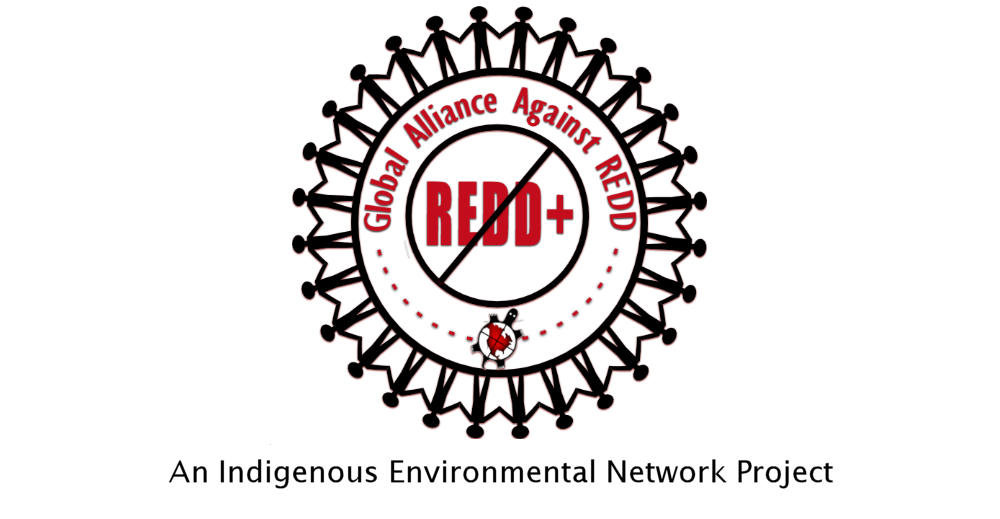
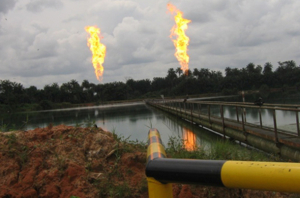
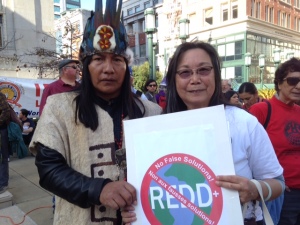
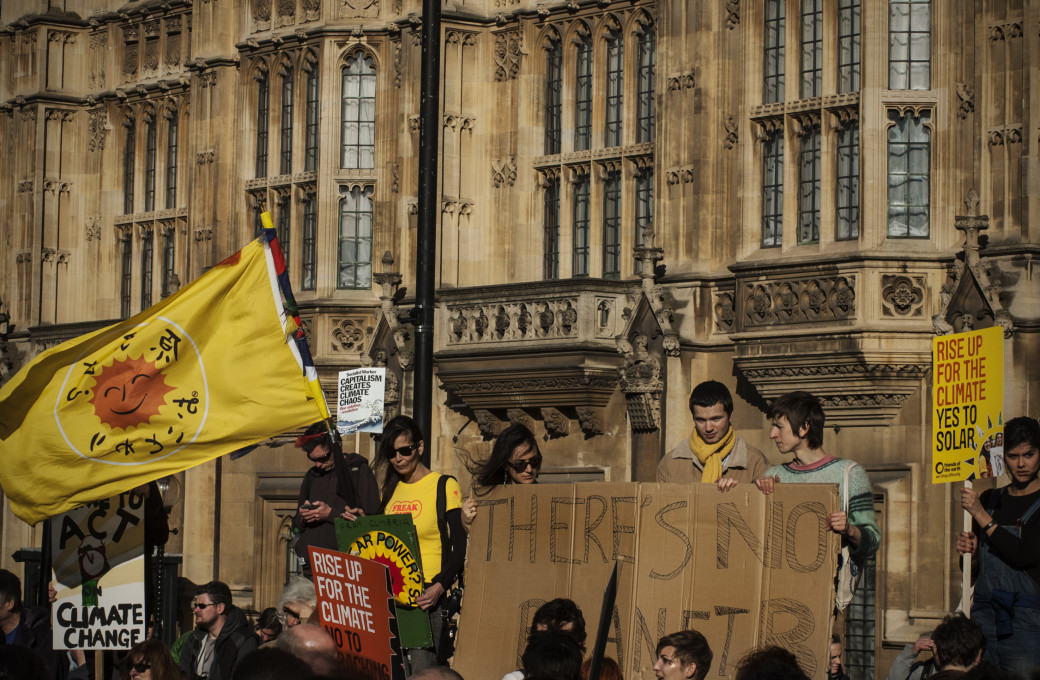





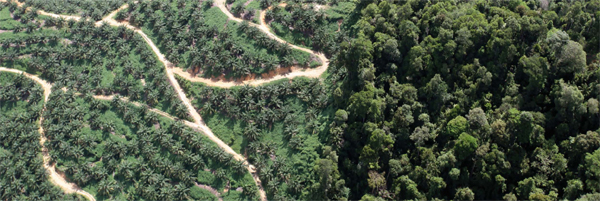
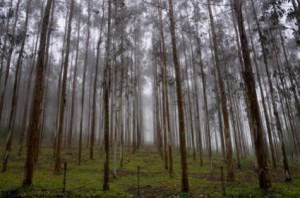
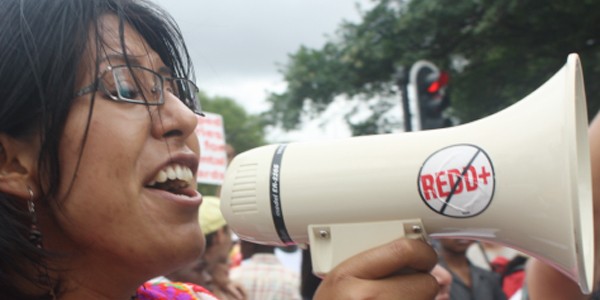
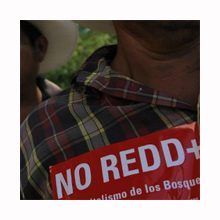 A Friends of the Earth report looks at specific case studies which demonstrate that REDD projects can facilitate rather than prevent the continued use of fossil fuels; exacerbate tensions over land and resource rights; have significant negative impacts on forest-dependent Indigenous Peoples and local communities; threaten food security; and even endanger forests. Some REDD projects have also faced significant financial difficulties, wasting considerable amounts of public funding.
A Friends of the Earth report looks at specific case studies which demonstrate that REDD projects can facilitate rather than prevent the continued use of fossil fuels; exacerbate tensions over land and resource rights; have significant negative impacts on forest-dependent Indigenous Peoples and local communities; threaten food security; and even endanger forests. Some REDD projects have also faced significant financial difficulties, wasting considerable amounts of public funding.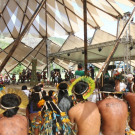 In 1992, while the first Rio Earth Summit took place, hundreds of indigenous peoples met and produced the
In 1992, while the first Rio Earth Summit took place, hundreds of indigenous peoples met and produced the 



 Last week, the Global Alliance of Indigenous Peoples and Local Communities on Climate Change against REDD and for Life held a
Last week, the Global Alliance of Indigenous Peoples and Local Communities on Climate Change against REDD and for Life held a